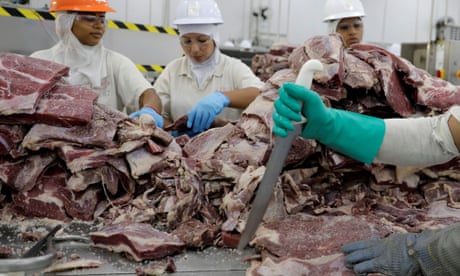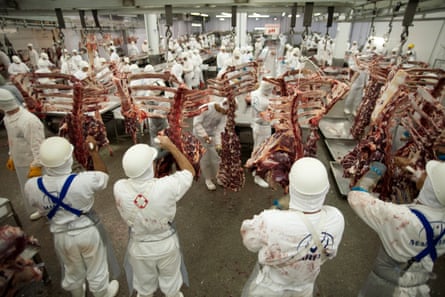Thu, July 14, 2022

DOVER, Del. (AP) — Twitter Inc.’s lawsuit to force billionaire Elon Musk to make good on his promise to buy the social media giant will be resolved in a small but powerful Delaware court that specializes in high-stakes business disputes.
Twitter has sued Musk in Delaware’s Court of Chancery in an effort to force him to complete a $44 billion takeover deal reached in April.
WHAT IS THE LAWSUIT ABOUT?
Musk, the world’s richest man, pledged to pay $54.20 a share for Twitter but now wants to back out of the agreement. He claims the company has failed to provide adequate information about the number of fake, or “spam bot,” Twitter accounts, and that it has breached its obligations under the deal by firing top managers and laying off a significant number of employees.
Twitter argues that Musk, CEO of electric car maker and solar energy company Tesla Inc., has operated in bad faith and is deliberately trying to tank the deal because market conditions have deteriorated and the acquisition no longer serves his interests. According to the lawsuit, the value of Musk’s shares in Tesla, which he was to draw upon to help finance the acquisition, has declined by more than $100 billion since November.
Either Musk or Twitter would be entitled to a $1 billion breakup fee if the other party is found responsible for the agreement failing. Twitter wants more, however, and is seeking a court order directing Musk to follow through with the deal.
WHEN DOES THE TRIAL START?
Twitter lawyers are asking the court to expedite the case. They have proposed a four-day trial starting Sept. 19.
WHAT IS THE COURT OF CHANCERY?
The Court of Chancery, established in 1792, traces its roots to the High Court of Chancery of Great Britain, which in turn evolved from an earlier institution in feudal England known as the King’s Chapel. The court, overseen by the lord chancellor as “keeper of the king’s conscience,” served as an alternative to the more rigid and inefficient common law courts. It held the power to offer remedies such as injunctions, estate administration, and, notably, “specific performance,” which can force a party to complete a transaction against its will.
The 230-year-old Court of Chancery typically handles civil cases where a plaintiff is seeking non-monetary damages. Such cases can include disputes over property boundaries and land purchases, guardianship appointments, and estates, trusts and wills.
More often than not, they involve business disputes pitting companies against disgruntled shareholders, or parties to failed mergers and acquisitions against one another.
HOW DOES THE COURT OF CHANCERY WORK TODAY?
The seven judges on the Delaware Court of Chancery exercise these powers today, making it a key venue for high-stakes business disputes. Delaware features a well-established and carefully nurtured body of corporate case law dating to 1899 and is the corporate home to more than 1 million business entities, including more than 60% of Fortune 500 companies. Many merger agreements, in fact, specify that any disputes will be heard by a Delaware Chancery Court judge.
“It’s not that they are necessarily more brilliant than judges in other states, they just have a lot of exposure to this stuff and are pretty sophisticated about it,” said Lawrence Hamermesh, executive director of the Institute for Law & Economics at the University of Pennsylvania.
HAS MUSK BEEN IN THIS COURT BEFORE?
Musk is no stranger to the Court of Chancery. Earlier this year, he emerged victorious in a shareholder lawsuit accusing him of a conflict of interest in Tesla’s 2016 acquisition of SolarCity, a struggling solar panel company in which Musk was the largest shareholder and also served as board chairman.
Hamermesh, a former professor of corporate and business law at Widener University Delaware Law School, noted that the specific performance sought by Twitter is a “pretty rare” remedy, and that it’s uncertain whether the court will force Musk to consummate the deal.
“There are a lot OF? instances where a judge could say, ‘Buyer, you’re in breach,’ but the remedy is a termination fee,” he said. “Given what I have seen so far, my gut instinct is that Twitter’s got the upper hand legally. Whether they’ll get the full specific performance or just the breakup fee is a little harder to say.”
HOW HAS THE COURT ACTED IN THE PAST?
If the court does force Musk to close the deal, it would not be without precedent.
In 2001, poultry giant Tyson Foods Inc. was ordered to complete its $3.2 billion acquisition of meatpacker IBP Inc. when a judge granted IBP’s claim for specific performance.
More recently, a Chancery judge last year ordered private equity firm Kohlberg & Co. to close its $550 million purchase of DecoPac Holdings Inc., which sells cake decorations and technology to supermarkets for in-store bakeries. Vice Chancellor Kathaleen St. Jude McCormick said Kohlberg had failed to demonstrate that a decline in DecoPac sales amid the coronavirus pandemic constituted a “material adverse effect” allowing the buyers to walk away. McCormick, who was sworn in as Chancellor, or head judge of the court, just one week after her ruling, described it as “a victory for deal certainty.”
On the flip side, Vice Chancellor J. Travis Laster declared in 2018 that a pharmaceutical company targeted for a merger had experienced such a decline in its financial condition that it amounted to a material adverse effect, allowing the proposed buyer to terminate the deal. The ruling marked the first time the court found the existence of a material adverse effect, or MAE, in a business transaction. It allowed German health care company Fresenius Kabi AG to walk away from its planned $4.3 billion acquisition of U.S. generic drugmaker Akorn Inc.
Randall Chase, The Associated Press














